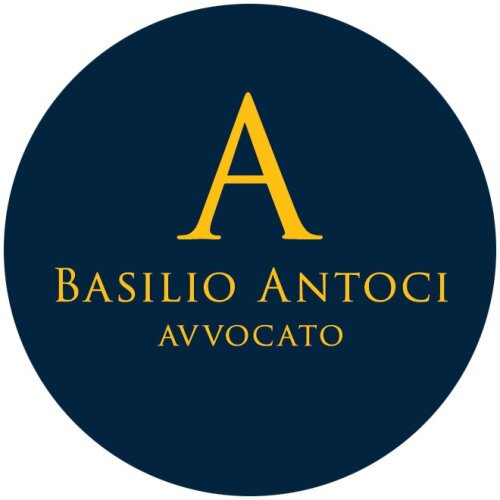Best Drug Crime Lawyers in Catania
Share your needs with us, get contacted by law firms.
Free. Takes 2 min.
List of the best lawyers in Catania, Italy
About Drug Crime Law in Catania, Italy
Drug crime law in Catania is governed by Italian national law, with enforcement carried out by local police, Carabinieri, and special anti-drug units. Catania, like other major cities in Sicily, faces challenges related to illegal drug trafficking, possession, and distribution due to its location and socioeconomic conditions. Italian law distinguishes between personal use and trafficking, but penalties can be severe. Prevention, rehabilitation, and law enforcement all play roles in the legal response to drug-related offenses in this region.
Why You May Need a Lawyer
If you are involved in a drug-related situation, the Italian legal system can be highly complex. Some common scenarios where legal assistance is essential include:
- Being arrested or detained for drug possession, use, or trafficking.
- Facing charges related to the manufacturing, sale, or transportation of illegal substances.
- Having property or assets seized in connection with suspected drug offenses.
- Wanting to understand your rights during police questioning or search procedures.
- Seeking to minimize penalties or pursue rehabilitation options instead of prison time.
- Representing someone-such as a family member-who is involved in a drug crime case.
- Dealing with cases involving minors and drug offenses.
- Looking to appeal a drug-related conviction or sentencing.
A lawyer experienced in drug crime law in Catania will help protect your rights, explain legal processes, and work towards the best possible outcome for your case.
Local Laws Overview
Italian drug laws are primarily governed by the “Testo Unico sugli Stupefacenti” (Presidential Decree 309/1990). Key aspects relevant to Catania include:
- Distinction between possession for personal use and trafficking: Small quantities intended for personal consumption are treated differently from larger quantities, which may indicate intent to traffic.
- Penalties: Drug trafficking, production, and distribution are serious crimes with prison sentences ranging from 6 to 20 years for severe offenses. Simple possession can result in administrative sanctions (fines, license suspension), but repeated offenses may carry prison time.
- Types of substances: Drugs are classified as “soft” (e.g., cannabis) or “hard” (e.g., cocaine, heroin), with harsher penalties for hard drugs.
- Police powers: Law enforcement may detain, search, and question individuals suspected of drug crimes. Legal procedures must be followed, and suspects have the right to a lawyer.
- Juvenile offenders: Minors may face reduced penalties or rehabilitative measures.
- Alternative measures: Italian law promotes alternatives to incarceration for non-violent offenders, including rehabilitation and community service.
Frequently Asked Questions
What happens if I am caught with a small amount of drugs for personal use in Catania?
If you are found with a small quantity of drugs presumed for personal use, you may face administrative sanctions such as suspension of your driving license or passport, but not criminal prosecution for a first offense. Repeated offenses or aggravating factors can lead to criminal charges.
What is considered "trafficking" under Italian law?
Trafficking includes activities such as selling, transporting, or distributing drugs-generally larger quantities or evidence indicating intent to distribute, such as packaging and large amounts of cash.
Can foreigners be deported for drug crimes in Catania?
Yes, non-Italian citizens convicted of drug offenses may face deportation or exclusion orders, especially after serving a criminal sentence.
Do I need a lawyer if I am arrested for a drug crime?
It is highly recommended to have legal representation to protect your rights, ensure due process is followed, and to negotiate with authorities or the court on your behalf.
What rights do I have during a drug-related arrest?
You have the right to remain silent, to be informed of the charges against you, and to contact a lawyer. If you cannot afford one, a public defender will be provided.
Are rehabilitation programs available as alternatives to imprisonment?
Yes, Italian law allows for alternatives to prison, especially for non-violent and first-time offenders who agree to participate in rehabilitation or social service programs.
Can my property be seized in a drug investigation?
Authorities may seize money, vehicles, or other property suspected to be connected to drug offenses, but you have the right to appeal the seizure in court.
What are the penalties for possessing cannabis in Catania?
Possession of cannabis for personal use can result in administrative sanctions, while trafficking or possession of large quantities is a criminal offense and can lead to imprisonment.
How does the law treat minors involved in drug offenses?
Minors are typically handled by juvenile courts and may be eligible for rehabilitative measures rather than imprisonment, unless the offense is particularly serious.
What should I do if I am questioned by police in relation to a drug crime?
Remain calm, provide identification if asked, but avoid making statements until you speak with a lawyer. Request legal counsel as soon as possible.
Additional Resources
- Camera Penale di Catania: An association of criminal lawyers in Catania that can provide legal assistance or recommend specialists.
- Polizia di Stato (Catania District Police): For information about drug crime prevention and reporting procedures.
- Associazione Antigone: National organization advocating for prisoner rights and prison reform.
- Comune di Catania - Servizi Sociali: Provides information about local social and rehabilitation services.
- Public Legal Aid Services: If you cannot afford a private lawyer, you may qualify for a public defender through the local courts.
Next Steps
If you or a loved one are facing issues related to drug crime in Catania, it is important to act promptly. Here are some steps to follow:
- Contact a criminal defense lawyer with experience in drug crime law in Catania as soon as possible.
- Preserve all documentation related to your case, including police reports, court documents, and any evidence.
- Exercise your right to remain silent and contact legal counsel before making statements to police or authorities.
- Ask about eligibility for alternative measures such as rehabilitation or community service if faced with non-violent or first-time offenses.
- Seek support from local organizations or social services if you need assistance or counseling.
Navigating drug crime charges can be daunting, but understanding your rights and seeking the correct legal support is the best way to protect your interests and work toward a positive resolution.
Lawzana helps you find the best lawyers and law firms in Catania through a curated and pre-screened list of qualified legal professionals. Our platform offers rankings and detailed profiles of attorneys and law firms, allowing you to compare based on practice areas, including Drug Crime, experience, and client feedback.
Each profile includes a description of the firm's areas of practice, client reviews, team members and partners, year of establishment, spoken languages, office locations, contact information, social media presence, and any published articles or resources. Most firms on our platform speak English and are experienced in both local and international legal matters.
Get a quote from top-rated law firms in Catania, Italy — quickly, securely, and without unnecessary hassle.
Disclaimer:
The information provided on this page is for general informational purposes only and does not constitute legal advice. While we strive to ensure the accuracy and relevance of the content, legal information may change over time, and interpretations of the law can vary. You should always consult with a qualified legal professional for advice specific to your situation.
We disclaim all liability for actions taken or not taken based on the content of this page. If you believe any information is incorrect or outdated, please contact us, and we will review and update it where appropriate.









